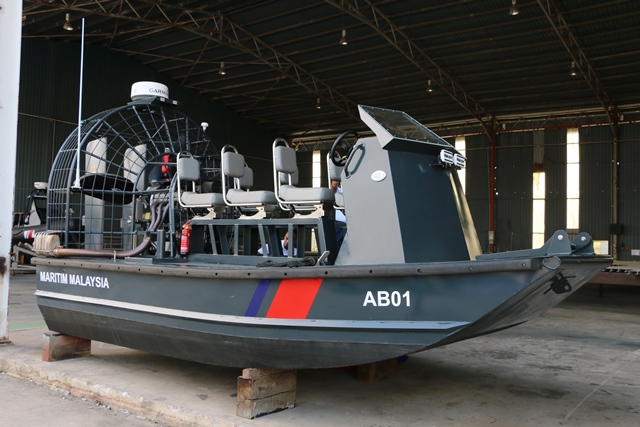
SHAH ALAM: Delays to the MMEA OPV. Destini Bhd which had divested itself from the MMEA OPV project in April this year has in its 2020 annual report explained what happened to the project. The company said the Covid 19 pandemic was partly responsible for the delays. Destini sold its part of the THHE/Destini JV to its partner THHE.
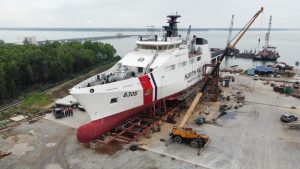
What the report says:
Destini’s marine division recorded a decline in revenue of RM86.85 million in FY2020 from RM172.84 million a year before
which resulted in a LATNCI of RM101.19 million from a LATNCI of RM66.12 million in FY2019.
• Destini’smarinedivision is the highest contributor to the Group’s revenue from its shipbuilding projects despite a slowdown in project execution during the year which was due to restrictions from the pandemic.
• The fabrication of three Offshore Patrol Vessels (“OPV”) saw a delay from not being able to receive construction materials on time. About 70% of the ship’s construction materials are sourced overseas and most of the items are shipped from China which went through a total lockdown in early 2020. The inability to secure construction materials due to the lockdown disrupted the timing of the project delivery.
• Seeing the delays in project execution, Destini requested for an extension of time and the Government had in November 17, 2020 approved an extension of time for the supply, delivery, testing and commissioning of the OPV’s for the Malaysian Maritime Enforcement Agency (“MMEA”) with effect from August 23, 2020 to August 22, 2022. As at December 2020, the
OPV project is 74% complete.
• However, despite these turbulences, Destini was still able to deliver three airboats and two New Generation Patrol Craft’s (“NGPC”) for the MMEA.
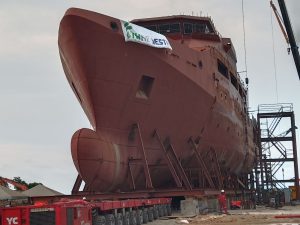
It is interesting to note that 70 per cent of the materials for the OPV is sourced from overseas and most of it come from China – most likely the steel or aluminium used to build the ships. It is just goes to show that despite what the politicians tell us that local production of military/security agency equipment benefits the local economy, most often than not especially for the high end ones, it does not.
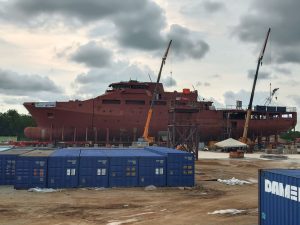
Yes it will offer employment to locals during the construction/manufacturing but after the five year period what then? And at what cost of those the local manufacturing does to the military/security agency budget?
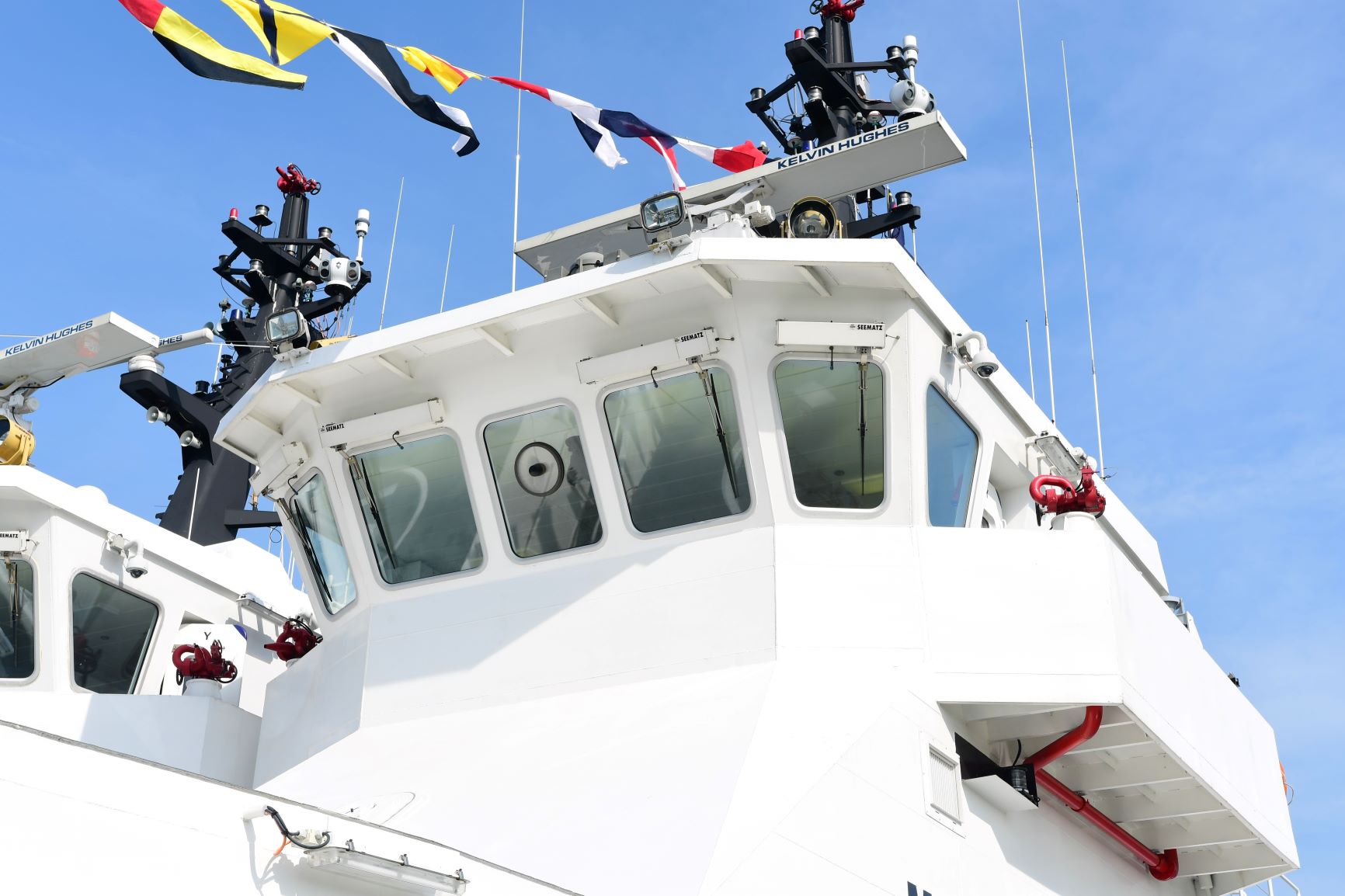
It must be noted that even though Destini had divested from the MMEA OPV project, its marine division remained intact and it can still bid for other projects locally or overseas including the LMS Batch II project.
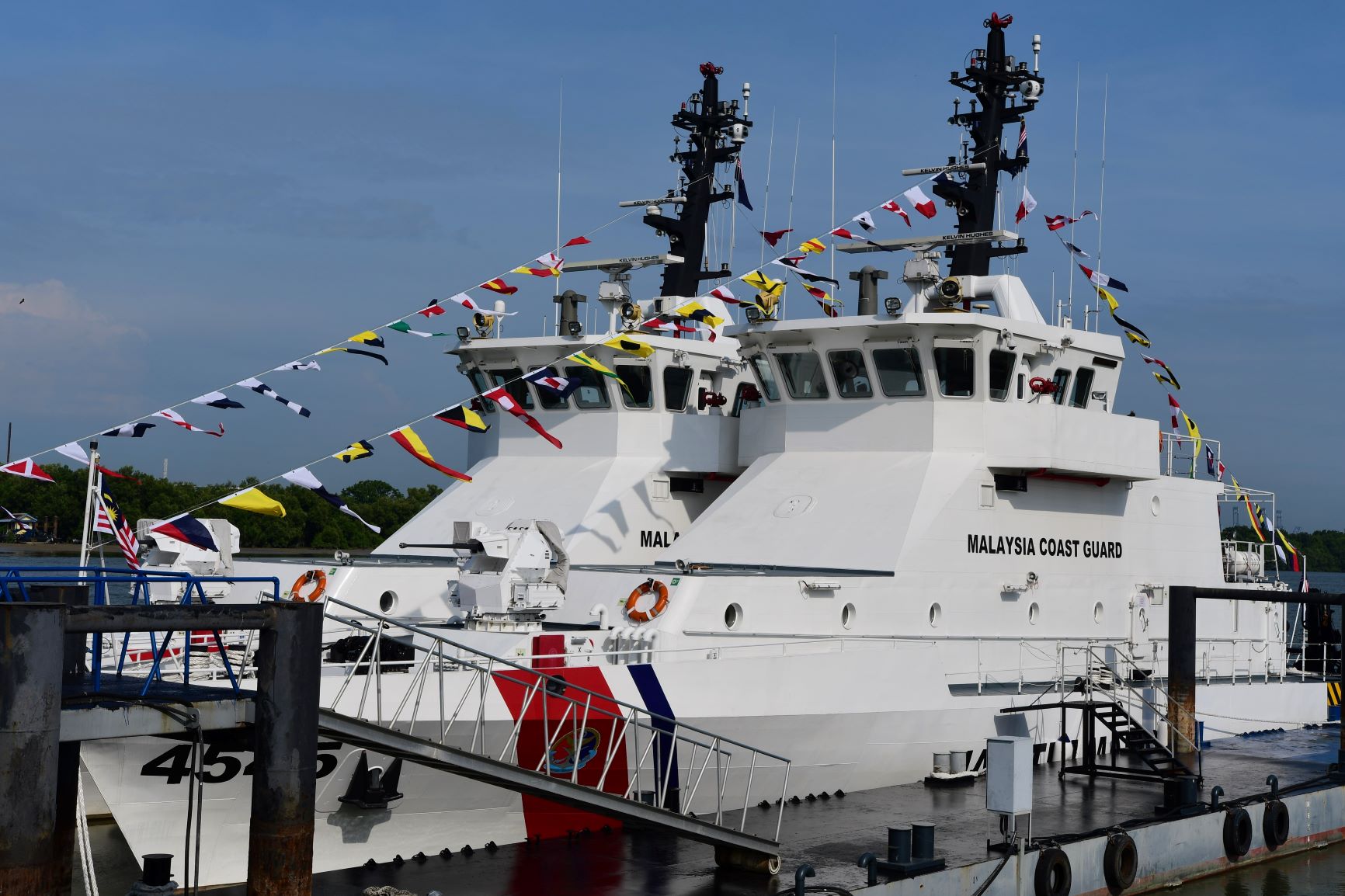
The report cited also noted that it had delivered three airboats and two NGPCs to the MMEA. The airboats were handed over in February, 2020 while the NGPC – KM Kota Kinabalu and KM Tok Bali it was in July. I have no idea where is the sixth NGPC, KM Lahad Datu is supposed to be, though I am told the ship has been completed.
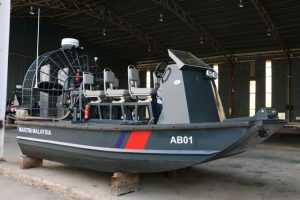
— Malaysian Defence
If you like this post, buy me an espresso. Paypal Payment


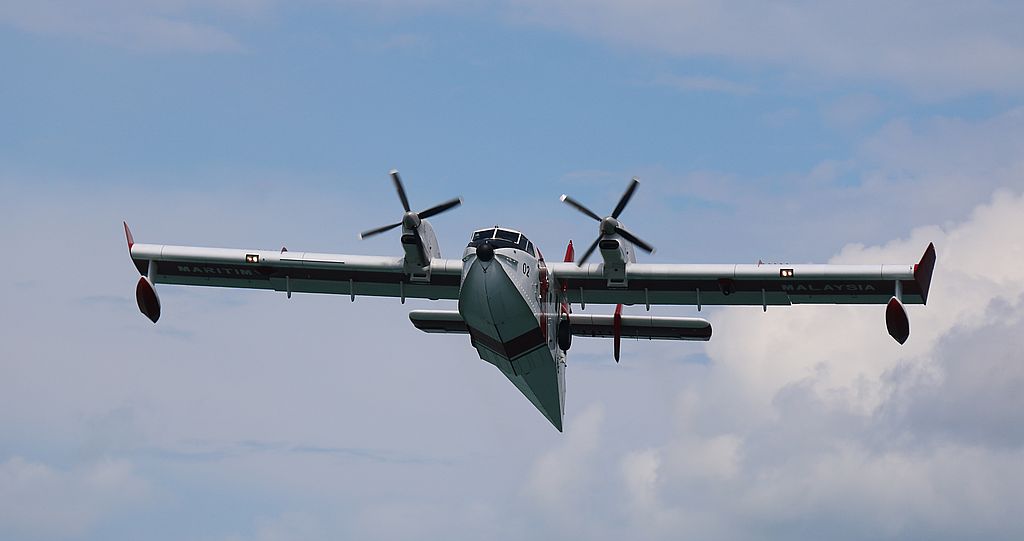
It’s a major conundrum we face. We want to keep pushing the “self sufficiency” myth (it’s politically sound after all) but we don’t have economics of scale; no continuity, we can’t keep prices low and the bulk of raw is ingredients/material are imported and paid for in foreign currency. We don’t even use enough ammo of certain types to justify local production. Yet many buy hook line and sinker the “self sufficiency” delusion and insist we produce locally.
Mr. Azlan, may I know what kind of economics of scale did u mentioned? In u opinion in Malaysia, what kind of raw material that we can get to produce large scale or any any bigger industries can we setup to boost our economy… Or is it our political system or bunch of political people are created such of unknown situation…
Errr…MMEA got 6 fulmars. How come they are not for these two NGPCs?
Reply
Because of an incident involving an MMEA officer or sailor while using the Fulmar
Easy job right to pin it all on covid 19…valid reason though..Once touted as the better progressed programme than lcs now becoming just as bad,like two years late bad..The chance for them to bag the second batch (if any) is pretty much zero now..Not to mention that CCG ships keeps encrouching our waters..
70% of imported material is a lot and it does make sense to have all our bigger build overseas. As for our local shipyards, Boustead, Destini and TTHE only do work for our government requirement. to sustain, will it help if they expand their focus to commercial built as well?
Marhalim,
“Because of an incident involving an MMEA officer or sailor while using the Fulmar”
No plan for MMEA to move this drone to bigger ship instead?
Reply
No idea
I see a polariasation between our politicians optimism and skeptics pessimism on the matter of localisation. If we’re to be purist and insistent that industries must used locally sourced materials then we can forget about all our industries and go back to farming & tin mining, forget about the rubber plants that came from Brazil, or the palm oil plants from Africa, or the offshore oil rigs made from parts around the world. Why bother have electronic packaging in Bayan Lepas when the microchips are made in Taiwan or USA or elsewhere?
We should take cognisant that raw materials will always come from outside, ie Proton & Perodua steel are from Posco(Korea) & Kobelco(Japan), so unlike those politicians we should take a middle line where there is some justification to have local industries as long the goal is altruistic and not based on dreamland fantasy.
IMHO the shipbuilding, yes, the multi year AV8s, yes, the puny 18units LG1 arty, no.
Reply
Those factories you mentioned are privately financed and also part of the global supply chain. So it makes sense. Most of our defence related things are politically driven so from the start it is wrong already
Far de man,
I guess that he meant that if you want to start local production of anything, there’s a minimum quantity needed for the venture to be viable. If you’re buying the item in very limited quantities (5-6 for example), it would be far cheaper to buy directly from the manufacturer than building the factory here as you have to finance both setup and operations cost for just one production line that operate just one time.
“Those factories you mentioned are privately financed”
Even then we aren’t immune to their tribulations; who suffers when they suddenly go bankrap and leaves in the night? We taxpayers did as we gotta pay their workers supporting allowances if their employers refused. Who bear Proton’s losses preGeely era? We taxpayers did over and over again.
If want to look at hindsight, better not have these industries so we don’t have to suffer losses but then our people would just be farming, fishing, mining, and small time businesses. There’s pros & cons, wins & losses, we just have to figure out how to gain something from those losses and not repeat them, something we lack there.
If even private entities are susceptible to inferior scale of volume, moreso for our defence industry, therefore either we should realise it is similar to our public transport system – that constantly makes losses – all for the sake of servicing the country, or continue as it is dreaming it can stand alone, or shut it all down and just buy everything from the source. Either way, the goal must be altruistic and the pros & cons fully understood & communicated to all.
ASM,
Continuity, economics of scale, a long term realistic apolitical plan, etc – all are lacking.
We have the ridiculous situation where it’s cheaper to buy mortar ammo from abroad rather than have SME produce it. Everything; from the brass caps to the propellent to the chemicals are imported. Very few countries; including the U.K. are really self sufficient with ammo.